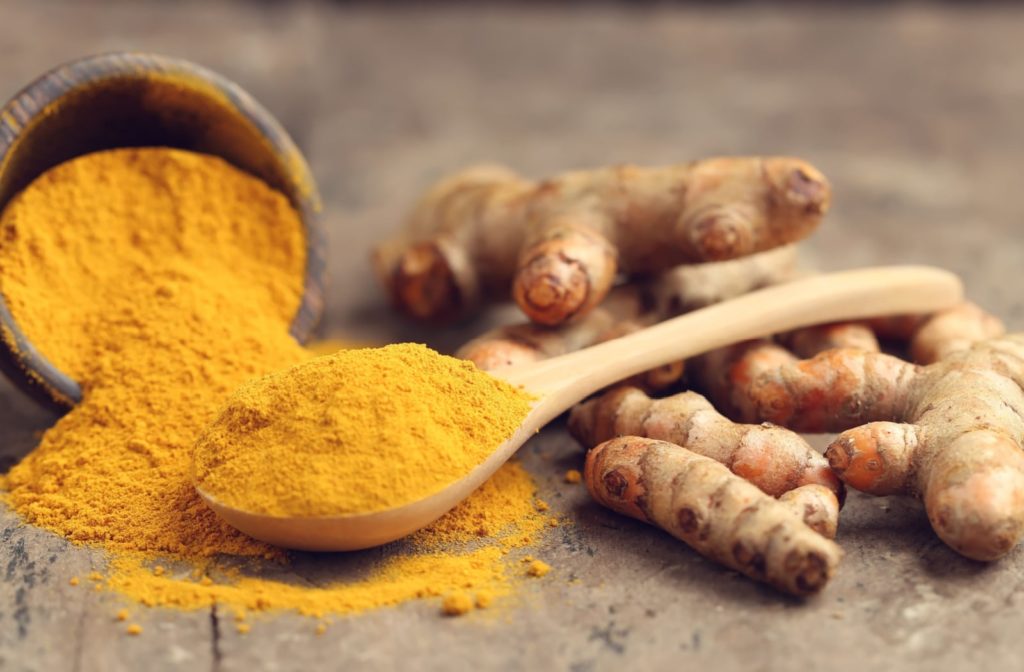Does Turmeric Stain Teeth?
Turmeric has been gaining popularity in the world of oral health because of its many purported benefits, though it has been used in Asia for thousands of years for both cooking and as a supplement. Many claim it can even help whiten teeth. Despite that, a concern has been raised among those who use turmeric regularly about whether it can actually stain teeth instead.
Tumeric can vary from bright orange to yellow and is known to stain hands and clothes if you are not careful while cooking. Turmeric might stain your teeth if you are consuming large amounts of it, though you can help mitigate this with regular brushing and flossing. While turmeric’s oral health uses are still emerging, it can not take the place of regular dental exams.
How Do Teeth Stain?
Many of us crave a bright and beautiful smile. However, it is not always easy to maintain it. Our teeth are susceptible to staining, causing them to lose their natural brightness.
When we eat or drink, the pigments present in the food and drinks adhere to the tooth enamel. Enamel is the protective covering of our teeth, and its surface is full of microscopic ridges and pits that can trap pigments. Over time, these pigments penetrate deeper into the enamel, making it harder to remove them with regular brushing and flossing.
There are various reasons why our teeth get stained, and it can also be a normal part of aging. As we age, the enamel thins, causing yellowish and brownish discolouration of the teeth.
Teeth stains can fall into the categories of extrinsic stains and intrinsic stains. Extrinsic stains affect the surface of the tooth and can be caused by:
- Coffee
- Tea
- Red sauces
- Red wine
- Chocolate
- Smoking
Intrinsic stains sit deeper within the tooth and can be harder to treat. Common causes of intrinsic stains include:
- Injuries
- Tooth decay
- Some medications
- Genetics
- Excessive fluoride
Does Turmeric Have Dental Health Benefits?
Turmeric is a yellow-orange spice commonly used as a spice in curry. However, it is also a well-known medicinal root with several purported oral health benefits. Much of this has to do with it containing curcumin, an anti-inflammatory polyphenol, and many people are turning to it as a natural alternative.
One study suggested the antibacterial properties of turmeric could help prevent gum diseases like gingivitis by inhibiting the growth of bacterial species. Other evidence points to turmeric mouthwash helping to reduce plaque when combined with regular brushing and flossing.
However, overall there simply is not enough concrete evidence to say if turmeric has proven health benefits, and the Canadian Medical Association Journal agrees.
Can Turmeric Whiten Teeth?
One of the most interesting claims about turmeric might be that this brightly coloured spice could whiten teeth. Unfortunately, there is no evidence that turmeric can whiten teeth, and most examples are purely anecdotal.
If you want a brighter smile, you will likely have to rely on more traditional and proven whitening methods.

Professional Teeth Whitening
If your teeth have already turned yellowish-brown, there are several over-the-counter whitening products available, such as:
- Whitening toothpaste that contains a mild abrasive to help remove surface stains
- Whitening strips—thin, transparent pieces of plastic coated with hydrogen peroxide or carbamide peroxide gel that typically have to sit on your teeth for about 30 minutes
- Whitening trays—filled with a peroxide-based whitening gel and worn for several hours or overnight
The active ingredients found in these over-the-counter products can break down the stains, remove surface stains, and penetrate the surface of the teeth. Peroxide is the most common ingredient used in the products, which breaks down into oxygen molecules that can penetrate the enamel, bleaching the stains.
Over-the-counter whitening products may have their limitations. For instance, they may not work on all stains and may take longer to achieve the desired results. Whitening toothpaste is only effective in removing surface stains, and whitening strips may not cover all your teeth.
If you are looking for a more effective and long-lasting solution, opt for professional teeth whitening procedures. Dentists can use whitening solutions with a higher peroxide concentration, offering quicker and more dramatic results. Some involve using special lights to enhance stain bleaching, while people who still want to whiten at home can get customized take-home teeth whitening trays.
Unlike over-the-counter teeth whitening trays, professional take-home kits use dental impressions to create trays that fit your teeth. This helps keep the whitening solution on your teeth rather than getting wasted on or irritating your soft tissue.
Experience a Brighter Smile
Turmeric can stain your teeth, but it typically requires eating a lot of it over an extended period. However, be mindful of how you use it in recipes that can contribute to stains. If you are concerned about dental discolouration, various teeth whitening treatments are available.Professional teeth whitening is a safe and effective cosmetic dental treatment that can improve the appearance of your smile. You can combine it with regular checkups and proper brushing to give your mouth a comprehensive clean. Book your appointment at Dentistry on Danforth today and discover how we can help you achieve your smile goals.


